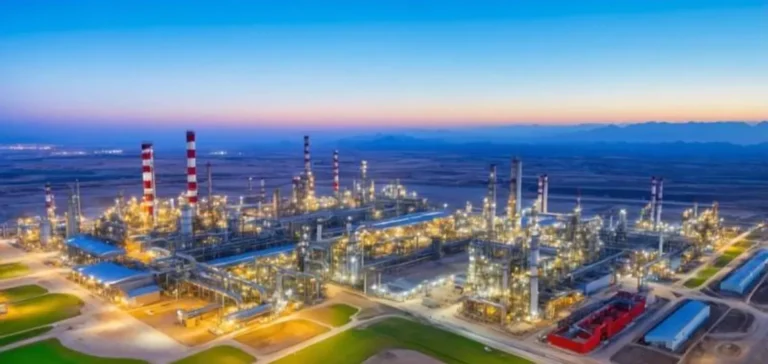China Petroleum & Chemical Corporation (Sinopec) has launched a new expansion phase of its integrated refining and petrochemical complex in the Xinjiang region. The announcement confirms a ramp-up of crude oil processing capacity and the introduction of new production lines for higher value petrochemical products.
Expansion of refining and production capacities
According to the company, the site’s annual refining capacity will rise from 5 million to 8.5 million tonnes. The project also includes the construction of 16 additional industrial units, including a 2.4 million tonnes per year hydrocracking unit, a 1.5 million tonnes continuous catalytic reforming unit, an 800,000 tonnes ethylene steam cracking unit and an 800,000 tonnes aromatics complex.
Completion is planned for 2029. The group estimates the project’s economic impact at about $2.85bn in annual output value, based on a crude oil price of $60 per barrel.
Investments focused on strategic hubs
In its 2025 interim report, Sinopec said it devoted 63% of first-half capital expenditure, or CNY27.6bn ($3.9bn), to exploration and development projects. Areas covered include facilities in Tahe, Jiyang and Fujian Province.
The Tahe site benefits from a strategic position within the north-west China oil basin, which facilitates its integration into national and regional logistics chains. The expansion is expected to enable the company to increase output of petrochemical derivatives used in the textile, automotive and packaging industries.
Industrial outlook for the petrochemical segment
The project fits into a sustained investment dynamic by large Chinese energy groups aimed at strengthening local processing of resources and limiting dependence on imports of refined products. Commissioning of new ethylene and paraxylene production units would allow Sinopec to capture a larger share of the Asian market.






















